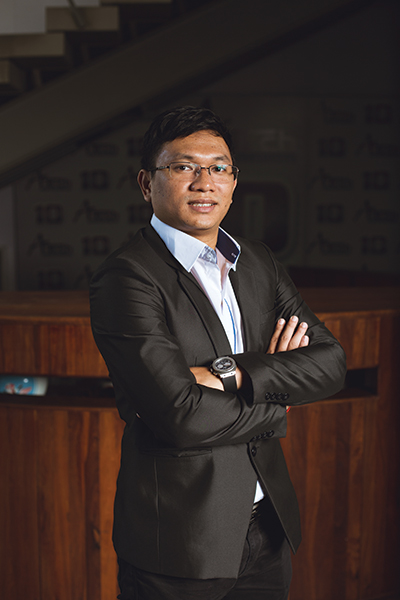Unfortunately, a great idea doesn’t necessarily result in a great business. Budding entrepreneurs do not only need resilience and charisma to make their vision a reality – they also need money. Securing funding is a significant challenge for small- and medium-sized enterprises (SMEs) everywhere, but it is an even bigger obstacle in Cambodia, where banks, by and large, only accept real estate as loan collateral and few alternative financing solutions exist beyond friends and family.
Having managed investments in Cambodia for more than six years, Chansamrach Lem, the managing director of Cambodia Investor Club (CIC), understands the difficulties SMEs face when trying to access finance in the Kingdom. “There are not many angel investors or other forms of alternative financing in Cambodia, and there is little government support, so access to finance remains the main challenge for them,” he said.
Rather than wait for the banks to modernise and the government to increase support for SMEs, Lem created his own solution. After discussions with the Mekong Business Initiative , a development partnership between the Australian government and the Asian Development Bank, he began developing Cambodia’s first peer-to-peer (P2P) online lending platform, Komchey. While other P2P lending platforms are already in use in Cambodia, Komchey is the first such software to be designed and owned by a Cambodian company.
“Being first is not easy. You have to work on many things,” Lem said. “Many people asked us: ‘Why don’t you just use existing software to run P2P lending?’ But building from scratch means we can provide better support.”
The platform, which launched on 14 January, enables SMEs to borrow money directly from other businesses, eliminating the need to own real estate in order to secure funding. To begin with, the platform will only be available to select businesses but should be widely available by the end of the year.
Lem hopes that Komchey – Khmer for ‘loan’ – will also help provide a support network for SMEs by connecting novice entrepreneurs with more experienced business minds.
“Sometimes entrepreneurs have a really good idea, but they do not have the capacity to run the business successfully. After the startups sign up, we can assess their needs and find out if they have this capacity or that capacity, and which capacity they need to strengthen. Then we can connect them to people who can help them and give them these capacities,” he said.

After three years of running the Cambodia office of Japanese social investment firm Arun, Lem was approached by a group of local investors to help establish CIC in 2013, and he jumped at the chance. “I was interested because they were all Cambodian. The idea of running a local investment company for local businesses that focused on securing investment from local investors really appealed to me,” he said.
That the CIC is strongly committed to encouraging local investors to invest in local businesses is one of its major selling points. However, a tendency in the Cambodian market toward investing in pre-existing businesses over startups and SMEs has meant it has not all been smooth sailing. “Senior businesspeople do not want to talk to the startups. They just want to build a network among the senior or existing businesses. But this is a bad way of thinking, as startups have a lot to offer,” said Lem.
An inhospitable regulatory business framework and a complex registration process meant Cambodia ranked 131st out of 190 economies in the World Bank’s 2016 Ease of Doing Business Index. When viewed in this wider context, it is easy to understand why Lem describes Komchey as “pioneering”.
“We wanted to disrupt the traditional way of providing finance to SMEs and startups. But it’s not just about money,” he said. “We’re creating a community.”


